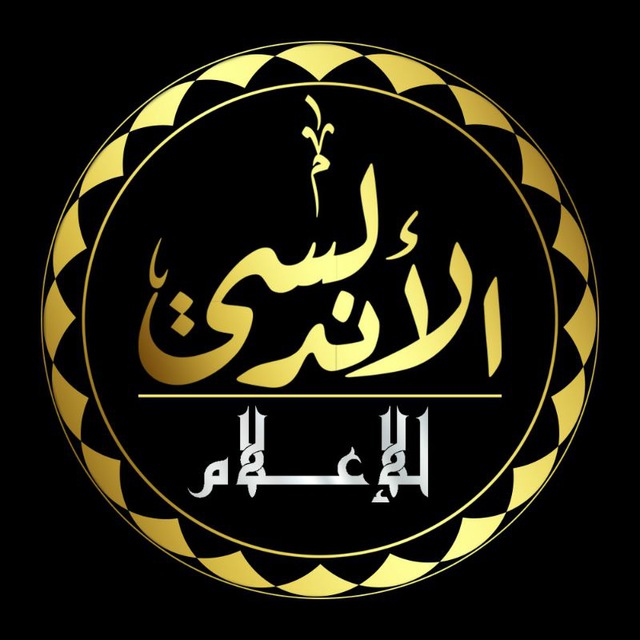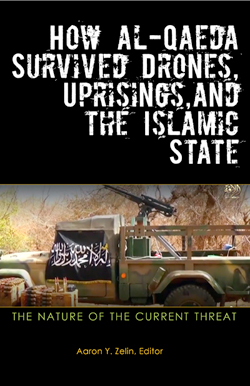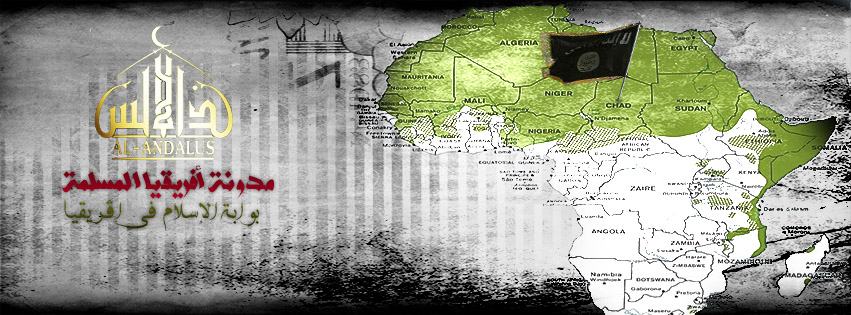
Click the following link for a safe PDF copy: ‘Abd Allah al-Shinqīṭī — The Truth of What France Is Weaving From a Deception in Mauritania- Commenting On Macron’s Meeting With the Heads of the So-Called G5 Countries
________________
New release from Shaykh Abū Muḥammad al-Maqdisī: “Reply to the Lawyer of Democracy ‘Ūld al-Didū'”

Click the following link for a safe PDF copy: Shaykh Abū Muḥammad al-Maqdisī — Reply to the Lawyer of Democracy ‘Ūld al-Didū’
_____________
To inquire about a translation for this release for a fee email: [email protected]
New release from Shaykh Abū Muḥammad al-Maqdisī: “Revealing the Suspicions of the Polemicists About the Idolatrous Legislators (Ūld al-Didū, For Example)”

Click the following link for a safe PDF copy: Shaykh Abū Muḥammad al-Maqdisī — Revealing the Suspicions of the Polemicists About the Idolatrous Legislators (Ūld al-Didū, For Example)
___________
Source: Telegram
To inquire about a translation for this release for a fee email: [email protected]
New release from Karīm al-Andalusī: "They Ask You .. What Are Their Initiatives Breeding? Have They Not Removed The 'Terrorist Embryo' Yet!!"

Click the following link for a safe PDF copy: Karīm al-Andalusī — They Ask You .. What Are Their Initiatives Breeding? Have They Not Removed The ‘Terrorist Embryo’ Yet!!
__________
Source: Telegram
To inquire about a translation for this release for a fee email: [email protected]
New video message from al-Andalusī Media: "Agents of the French Occupation in the Sahel"

___________
Source: Telegram
To inquire about a translation for this video message for a fee email: [email protected]
New video message from Jamā’at Nuṣrat al-Islām Wa-l-Muslimīn: "And Whoever Warns, He Is Excused"

______________
To inquire about a translation for this video message for a fee email: [email protected]
Check out my new edited volume for the Washington Institute for Near East Policy: "How al-Qaeda Survived Drones, Uprisings, and the Islamic State"

Over the past eight years, al-Qaeda’s fortunes have ebbed and flowed. Drones, uprisings, and a challenge from the Islamic State have forced the core al-Qaeda organization—historically based in the Afghanistan/Pakistan region—and its various branches to adapt and migrate outward.
In this new Policy Focus, Washington Institute fellow Aaron Y. Zelin compiles case studies demonstrating how each part of al-Qaeda’s network has evolved and survived the various challenges it has faced roughly since the Obama administration took office. Written by eminent scholars, practitioners, and government officials from the United States and abroad, the chapters are informed by a recent workshop in which the participants gave candid, off-the-record assessments of numerous key issues, including al-Qaeda’s current strategic outlook, a close examination of its branch in Syria, its branches outside of Syria (AQAP, AQIM, al-Shabab, and AQIS), and its current financial situation.
Contributors include: myself, Bruce Hoffman, Charles Lister, Daveed Gartenstein-Ross, Samuel Heller, Katherine Zimmerman, Andrew Lebovich, Christopher Anzalone, Don Rassler, Hans-Jakob Schindler, Katherine Bauer, and Matthew Levitt.
Click here to read the full publication (124 pages).
Check out my new article in The CTC Sentinel: "Fifteen Years After The Djerba Synagogue Bombing"
 Abstract: Fifteen years ago this month, a Tunisian operative named Nizar Nawar detonated a truck bomb outside the el-Ghriba synagogue in Djerba, Tunisia, killing 19, including 16 German and French tourists. Orchestrated by Khalid Sheikh Mohammed, it was al-Qa`ida’s first successful international attack after 9/11, but it has received far less attention than other attacks launched by the group. Court documents, case files, and primary sources shed significant new light on the attack and al-Qa`ida’s then modus operandi for international attack planning, which has both similarities and differences with recent international terrorist plots carried out by the Islamic State. In retrospect, the Djerba attack should have been a warning sign of the international threat posed by Tunisian foreign fighters, who are now one of the most dangerous cohorts within the Islamic State.
On April 11, 2002, a Tunisian al-Qa`ida operative named Nizar Bin Muhammad Nasar Nawar (Sayf al-Din al-Tunisi) ignored security officers’ orders to stop and drove a truck filled with liquid propane into the wall of el-Ghriba Synagogue, one of Africa’s oldest Jewish synagogues, in Djerba, Tunisia.1 Masterminded by Khalid Sheikh Mohammed (KSM),a the attack killed 14 Germans, three Tunisians, and two Frenchmen and left 30 others injured. Although it was al-Qa`ida’s first successful external operation following the 9/11 attacks, little has been written about how the attack materialized. It is one of the only large-scale, post-9/11 attacks or plots that has not been given a full retrospective treatment based on information that has been gleaned since its execution.2 Additionally, in light of the current Islamic State external operation campaign, it is worth examining how the Djerba bombing compares to more recent terrorist attacks in order to shed light on the evolution of terrorist attack planning.
This article draws on court documents, media reports, Guantanamo Bay prisoner review files, and Arabic primary sources from the jihadi movement to tell the story of the attack. While there is much contradictory information, the author has attempted to piece together what really happened by cross-referencing sources and weighing their credibility. While many scholars and general observers were surprised at the number of Tunisians who became involved with jihadism following the country’s revolution, this study of the network behind the Djerba attack makes clear that Tunisians have, in fact, played a significant role in the global jihadi movement for decades. Equally relevant to understanding the contemporary threat picture, this article sheds light on the longstanding importance of entrepreneurial individuals who link different nodes of networks together.3
Click here to read the article in full.
Abstract: Fifteen years ago this month, a Tunisian operative named Nizar Nawar detonated a truck bomb outside the el-Ghriba synagogue in Djerba, Tunisia, killing 19, including 16 German and French tourists. Orchestrated by Khalid Sheikh Mohammed, it was al-Qa`ida’s first successful international attack after 9/11, but it has received far less attention than other attacks launched by the group. Court documents, case files, and primary sources shed significant new light on the attack and al-Qa`ida’s then modus operandi for international attack planning, which has both similarities and differences with recent international terrorist plots carried out by the Islamic State. In retrospect, the Djerba attack should have been a warning sign of the international threat posed by Tunisian foreign fighters, who are now one of the most dangerous cohorts within the Islamic State.
On April 11, 2002, a Tunisian al-Qa`ida operative named Nizar Bin Muhammad Nasar Nawar (Sayf al-Din al-Tunisi) ignored security officers’ orders to stop and drove a truck filled with liquid propane into the wall of el-Ghriba Synagogue, one of Africa’s oldest Jewish synagogues, in Djerba, Tunisia.1 Masterminded by Khalid Sheikh Mohammed (KSM),a the attack killed 14 Germans, three Tunisians, and two Frenchmen and left 30 others injured. Although it was al-Qa`ida’s first successful external operation following the 9/11 attacks, little has been written about how the attack materialized. It is one of the only large-scale, post-9/11 attacks or plots that has not been given a full retrospective treatment based on information that has been gleaned since its execution.2 Additionally, in light of the current Islamic State external operation campaign, it is worth examining how the Djerba bombing compares to more recent terrorist attacks in order to shed light on the evolution of terrorist attack planning.
This article draws on court documents, media reports, Guantanamo Bay prisoner review files, and Arabic primary sources from the jihadi movement to tell the story of the attack. While there is much contradictory information, the author has attempted to piece together what really happened by cross-referencing sources and weighing their credibility. While many scholars and general observers were surprised at the number of Tunisians who became involved with jihadism following the country’s revolution, this study of the network behind the Djerba attack makes clear that Tunisians have, in fact, played a significant role in the global jihadi movement for decades. Equally relevant to understanding the contemporary threat picture, this article sheds light on the longstanding importance of entrepreneurial individuals who link different nodes of networks together.3
Click here to read the article in full.
New video message from The Islamic State: "They Bewitched the Eyes of the People and Struck Terror Into Them – Wilāyat al-Khayr"
The title of this release is in reference to Qur’anic verse 7:116. Here it is in full: “He said, ‘Throw,’ and when they threw, they bewitched the eyes of the people and struck terror into them, and they presented a great [feat of] magic.”
—

___________________
To inquire about a translation for this video message for a fee email: [email protected]
al-Andalus Media presents a new article from al-Qā’idah in the Islamic Maghrib’s The Muslim Africa Blog’s Maḥmūd bin Muḥammad al-Mukhtār al-Shinqīṭī: "Why the People of Mauritania Memorize"

Click the following link for a safe PDF copy: Maḥmūd bin Muḥammad al-Mukhtār al-Shinqīṭī — “Why the People of Mauritania Memorize”
________________
To inquire about a translation for this article for a fee email: [email protected]
